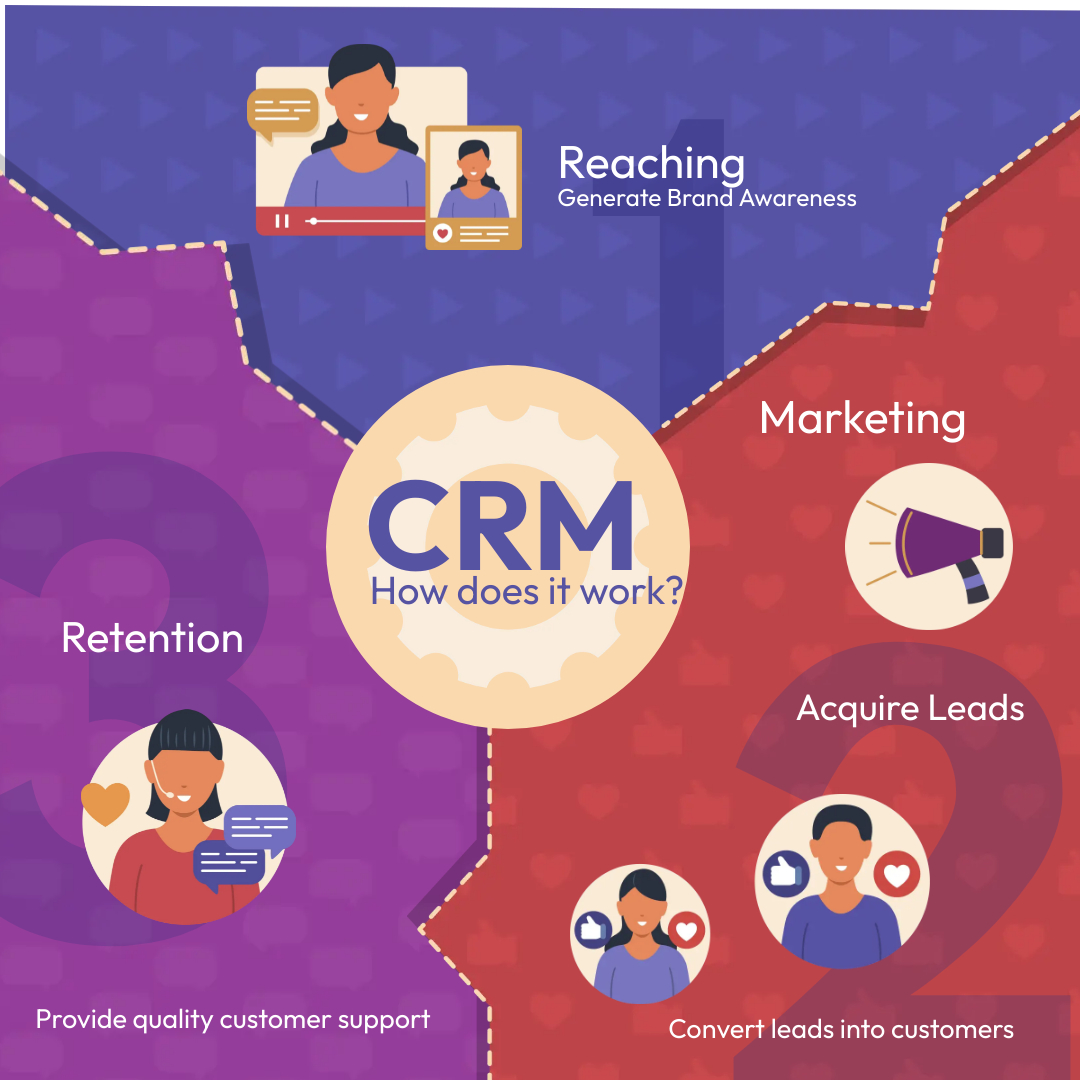Centralized Customer Information
Single Source of Truth
A CRM system acts as a centralized repository for all customer data, ensuring that every team member has access to the most up-to-date information.
Comprehensive Profiles: CRM systems store detailed customer profiles, including contact information, purchase history, preferences, and interactions. This helps direct sellers understand their customers better and tailor their approach accordingly.
Accessible Anywhere: Cloud-based CRMs ensure that this information is accessible from anywhere, allowing sales representatives to stay informed and responsive, whether they are in the office or on the go.
Improved Data Management
By consolidating customer data in one place, CRM systems improve data management and reduce errors associated with manual data entry.
Automated Updates: CRMs automatically update customer records, ensuring that all information is current and accurate.
Data Security: CRM systems provide robust security measures to protect sensitive customer information, ensuring compliance with data protection regulations.
Enhanced Customer Interactions
Personalized Communication
CRM systems enable personalized communication by providing insights into customer preferences and behavior.
Targeted Messaging: Use CRM data to segment customers and send targeted messages that resonate with each group. Personalized emails, offers, and recommendations can significantly enhance customer engagement and loyalty.
Tailored Follow-Ups: Automate follow-up emails and reminders based on customer interactions and purchase history, ensuring timely and relevant communication.
Improved Customer Support
CRM systems streamline customer support by providing a complete view of each customer’s history and interactions.
Quick Issue Resolution: Support teams can quickly access all relevant information, enabling them to resolve issues more efficiently and effectively.
Consistent Service: With a CRM, all team members have access to the same information, ensuring consistent and high-quality customer service across all touchpoints.
Streamlined Operations
Sales Process Automation
CRM systems automate various aspects of the sales process, freeing up time for direct sellers to focus on building relationships and closing deals.
Lead Management: Automatically capture and assign leads to sales representatives based on predefined criteria, ensuring prompt follow-up and reducing the chances of leads falling through the cracks.
Sales Pipeline Tracking: Track the progress of each sale through the pipeline, providing visibility into the status of deals and helping to identify bottlenecks or areas for improvement.
Task Management
CRM systems help direct sellers manage their tasks more efficiently by providing tools for task assignment, tracking, and reminders.
Automated Reminders: Set up automated reminders for follow-up calls, meetings, and other important tasks to ensure nothing is overlooked.
Collaborative Tools: Use the CRM’s collaborative features to assign tasks to team members, track progress, and ensure accountability.
Insightful Analytics and Reporting
Data-Driven Decision Making
CRM systems provide powerful analytics and reporting tools that help direct selling businesses make informed decisions.
Sales Performance Analysis: Analyze sales data to identify trends, measure performance, and set targets. Understand which products are performing well and which ones need more focus.
Customer Insights: Gain insights into customer behavior and preferences, helping to refine marketing strategies and improve product offerings.
Predictive Analytics
Advanced CRM systems offer predictive analytics capabilities that can forecast future sales and customer trends.
Sales Forecasting: Use historical data to predict future sales, helping to plan inventory, set sales targets, and allocate resources effectively.
Customer Lifetime Value: Predict the lifetime value of customers based on their purchasing behavior, allowing for more strategic marketing and customer retention efforts.
Improved Customer Retention
Loyalty Programs
CRM systems can help manage and track customer loyalty programs, rewarding repeat customers and encouraging long-term relationships.
Automated Rewards: Automatically apply rewards and discounts based on customer activity, ensuring timely and relevant incentives.
Engagement Tracking: Monitor customer engagement and identify at-risk customers who may need additional attention to retain their business.
Feedback Collection
Gathering customer feedback is crucial for continuous improvement. CRM systems streamline this process by integrating feedback mechanisms.
Surveys and Reviews: Send automated surveys and request reviews after purchases or interactions to gather valuable customer feedback.
Actionable Insights: Analyze feedback to identify areas for improvement and implement changes that enhance the customer experience.
Conclusion
CRM systems are powerful tools that can transform direct selling businesses by streamlining operations and improving customer interactions. By centralizing customer information, enhancing communication, automating tasks, and providing insightful analytics, CRM systems help direct sellers build stronger relationships, boost sales, and increase customer retention. As technology continues to evolve, leveraging the full potential of CRM systems will be essential for staying competitive in the direct selling industry. #G611748


.png)
.png)
.png)
.png)
.png)

